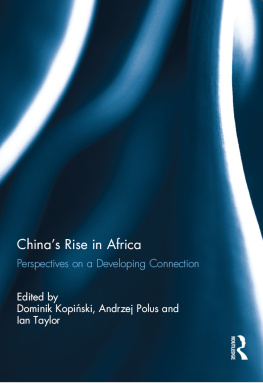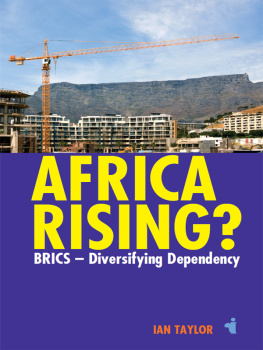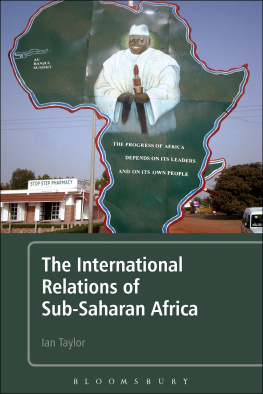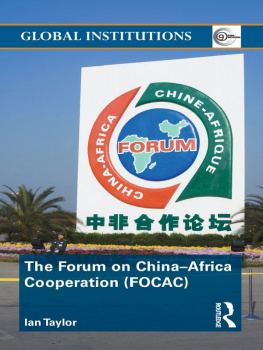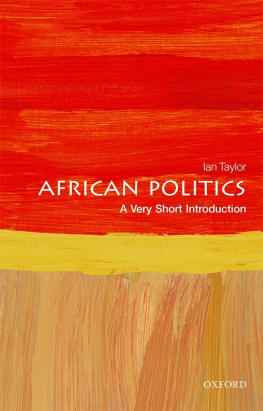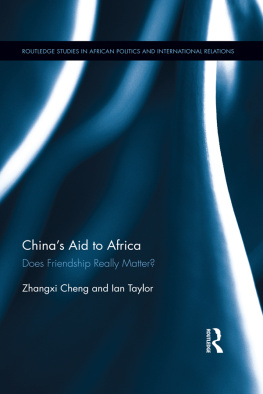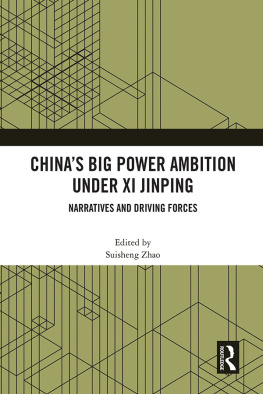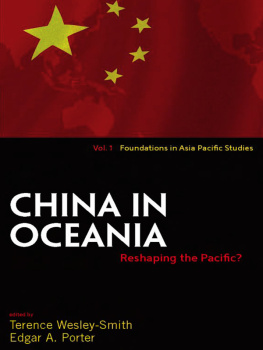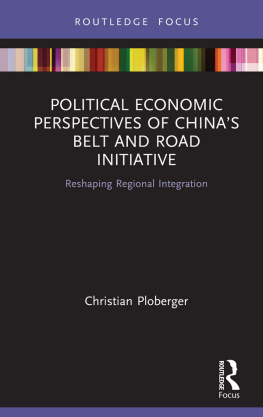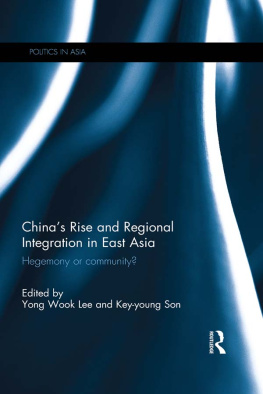Chinas Rise in Africa
In seeking to cultivate external relations with African countries, China has long stressed its commonly shared roots with African nations as a developing country rather than a Western state, and as such the symbolic attraction of China clearly reverberates with many African elites who seem to look on China as a positive development model. However, it should be noted that this has not been embraced solely by dictatorial or authoritarian regimes but in fact Chinas approach to non-interference has struck a chord even with those democratically elected leaders in Africa. While such practices clearly benefit African elites, it remains doubtful that they do so for ordinary Africans, although sustained analysis suggests that potential exists, albeit hampered by the modalities of governance on the continent.
This book brings together experts on the topic to throw light on some of the more contentious aspects of the relationship.
This book was published as a special issue of the Journal of Contemporary African Studies.
Dominik Kopiski is Assistant Professor at the Institute of International Studies, University of Wrocaw, Poland.
Andrzej Polus is Assistant Professor at the Institute of International Studies, University of Wrocaw, Poland.
Ian Taylor is Professor at the University of St Andrews and University of Stellenbosch.
Chinas Rise in Africa
Perspectives on a Developing Connection
Edited by
Dominik Kopiski, Andrzej Polus and Ian Taylor
First published 2012
by Routledge
2 Park Square, Milton Park, Abingdon, Oxon, OX14 4RN
Simultaneously published in the USA and Canada
by Routledge
711 Third Avenue, New York, NY 10017
First issued in paperback 2013
Routledge is an imprint of the Taylor & Francis Group, an informa business
2012 The Institute of Social and Economic Research
This book is a reproduction of the Journal of Contemporary African Studies, vol. 29, issue 2. The Publisher requests to those authors who may be citing this book to state, also, the bibliographical details of the special issue on which the book was based.
All rights reserved. No part of this book may be reprinted or reproduced or utilised in any form or by any electronic, mechanical, or other means, now known or hereafter invented, including photocopying and recording, or in any information storage or retrieval system, without permission in writing from the publishers.
Trademark notice: Product or corporate names may be trademarks or registered trademarks, and are used only for identification and explanation without intent to infringe.
British Library Cataloguing in Publication Data
A catalogue record for this book is available from the British Library
ISBN13:978-0-415-68887-1
ISBN13: 978-0-415-84648-6
Typeset in Times New Roman
by Taylor & Francis Books
Disclaimer
The publisher would like to make readers aware that the chapters in this book are referred to as articles as they had been in the special issue. The publisher accepts responsibility for any inconsistencies that may have arisen in the course of preparing this volume for print.
Contents
Dominik Kopiski, Andrzej Polus and Ian Taylor
Wu Zhengyu and Ian Taylor
Pter Marton and Tams Matura
Lucy Corkin
Dominik Kopiski and Andrzej Polus
Karolina Wysoczaska
Maurizio Carbone
ukasz Fijakowski
Dominik Kopiski, Andrzej Polus and Ian Taylor
University of Wroclaw and University of St Andrews/University of Stellenbosch
In seeking to cultivate external relations with African countries, China has long stressed its commonly shared roots with African nations as a developing country rather than a Western state, and as such the symbolic attraction of China clearly reverberates with many African elites who seem to look on China as a positive development model. However, it should be noted that this has not been embraced solely by dictatorial or authoritarian regimes but in fact Chinas approach to noninterference has struck a chord even with those democratically elected leaders in Africa. While such practices clearly benefit African elites, it is remains doubtful that they do so for ordinary Africans, although sustained analysis suggests that the potential exists, albeit hampered by the modalities of governance on the continent.
The growing presence of Chinese economic and political actors in Africa reflects what is, perhaps, the most important set of dynamics to shape Africas external relations since the end of the Cold War. The political dimension of this upsurge in interest from Beijing can be traced from the Tiananmen Square incident in 1989, where China found itself under pressure from its erstwhile economic partners in the West (Taylor 1998, 447). Notably, several African countries rallied around Beijing and expressed support for the measures employed by the Chinese military. In the context where Western powers (temporarily) ostracised Beijing, the Chinese leaderships view of Africa in Chinas broader foreign policy was subsequently transformed from one of benign neglect to one of renewed emphasis the developing world was elevated in Chinese thinking to become a cornerstone of Beijings foreign policy (Taylor 1998, 447).
Beijing found in Africa a supportive constituency. Many African leaders viewed and continue to view China as a success story in that it has risen from backwardness to staggering economic growth without following the prescriptions of the West (Alden 2005, 156). Notably, Chinas leaders have avoided the calls for democracy and good governance that the West ostensibly demands. Equally, Chinas leadership has in recent years actively courted African leaders with a return to the rhetoric of a shared colonial history of repression. Though this rhetoric harks back to the 1960s and it is doubtful whether it matters that a capitalist exploiter is French, Polish or Chinese (he is still an exploiter), this discourse is lapped up by many African elites, attracted by its intrinsically anti-Western sentiment. A heightened emphasis on the importance of state sovereignty has also chimed with African leaders who have felt under pressure from Western demands for reform. At the same time, the Chinese have seen in Africa a useful arena where it can continue to isolate Taiwan (a struggle China has won hands-down) and as an increasingly important economic resource.
Indeed, the urgent need for oil has been a major impetus in the recent economic surge in Chinese activity in Africa (Shinn and Eisenman 2005, 7). While Beijing has been criticised in Africa that its trade practices significantly benefit the Chinese economy even if this is to the detriment of African countries, the importation of oil from Africa to China has in fact leveled the playing field to a degree between China and Africa. The annual growth rate on the Africa continent has increased in recent years and this is due in large part to the impact of Chinas economic ventures in the region and its purchase of oil specifically (Taylor 2006, 951). Chinas renewed interest in Africa has seen many Chinese businesspeople travelling to Africa to pursue their entrepreneurial agendas, and some analysts as well as many African governments believe that this will greatly increase the development prospects of local African economies, while also allowing access to a new range of products and services (Tull 2006, 472). Economic growth in Africa has also been furthered by a steady increase in Chinese tourism and this increase has occurred largely through the Chinese governments promotion of many African states as officially approved travel destinations, bringing a much needed boost to the tourism industry in over a dozen countries on the African continent (Alden 2005, 154). Ultimately, it might be said that in the short term, Chinas trade with and investment in Africa are of assistance to the development of the continent, if for no other reason than that little investment is forthcoming from other sources. [Furthermore,] Chinas investment in Africas crumbling infrastructure is needed (Taylor 2006, 949).


